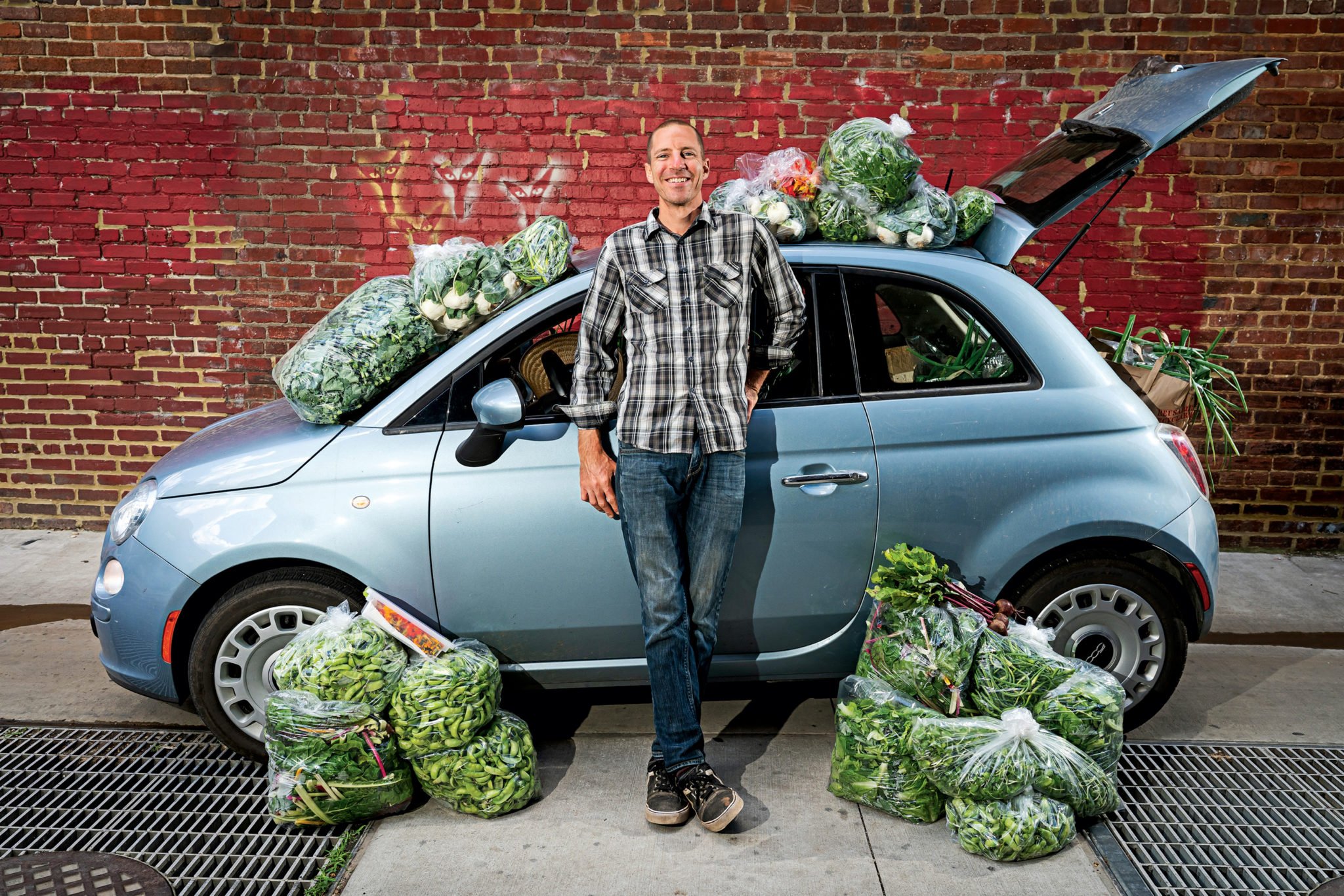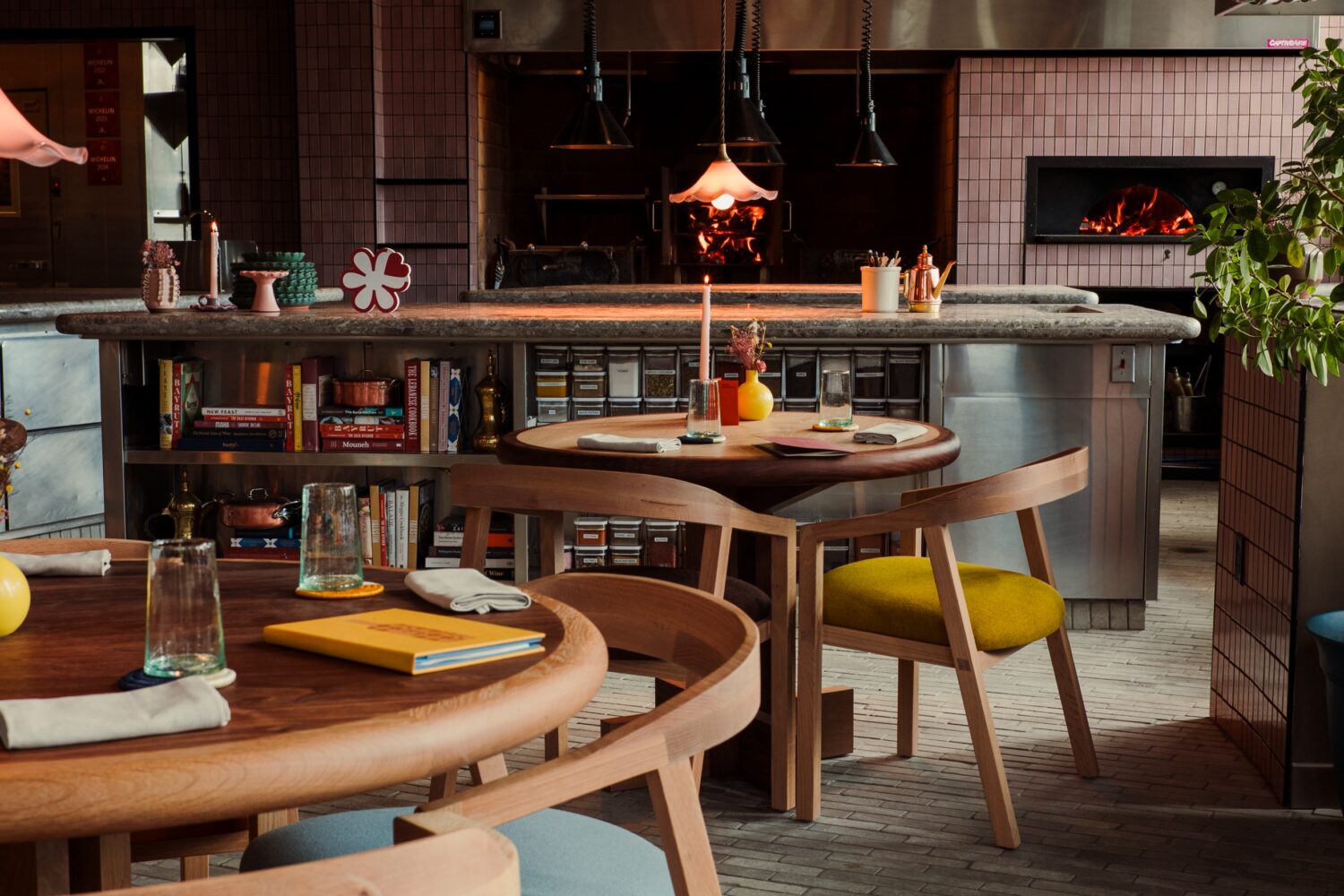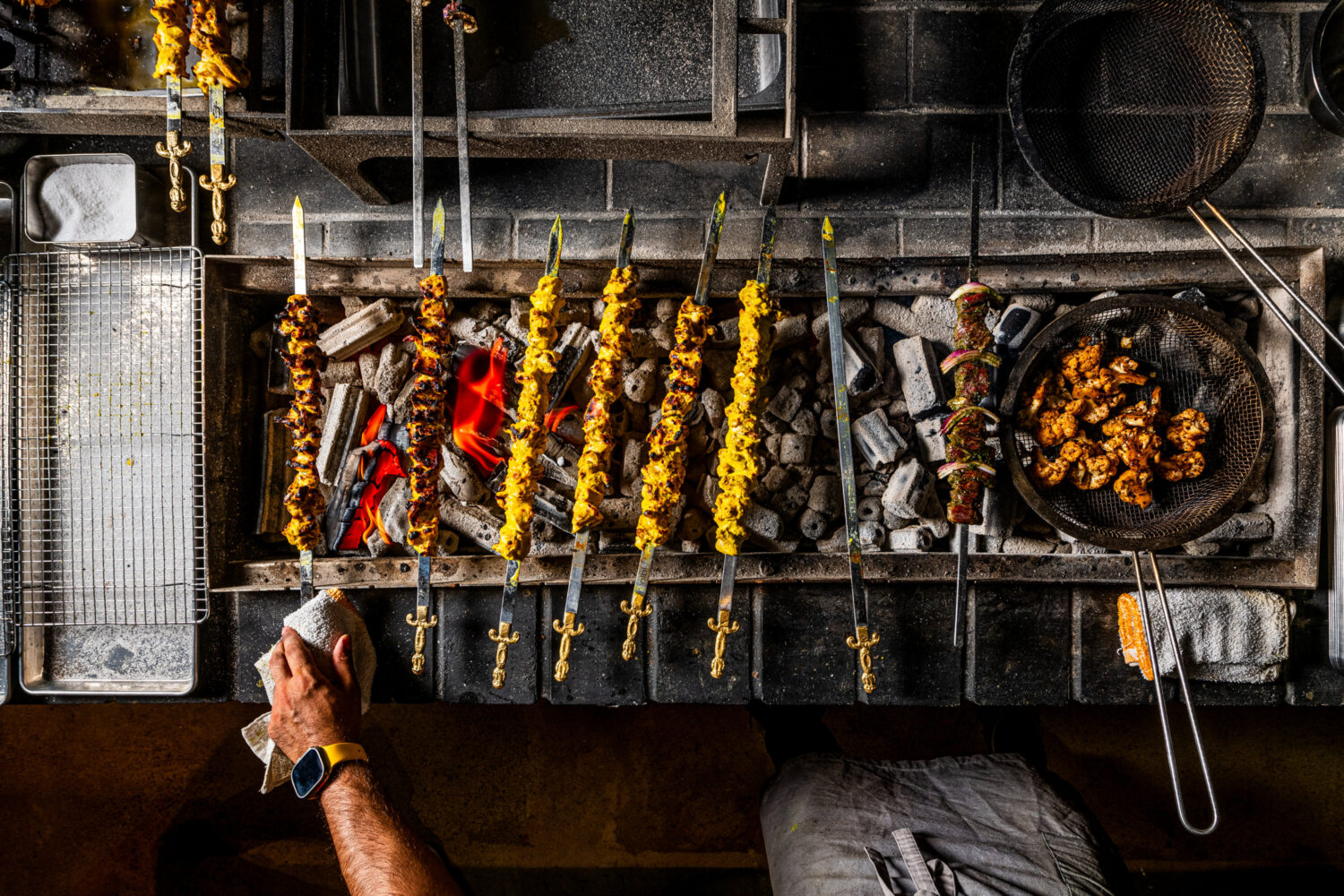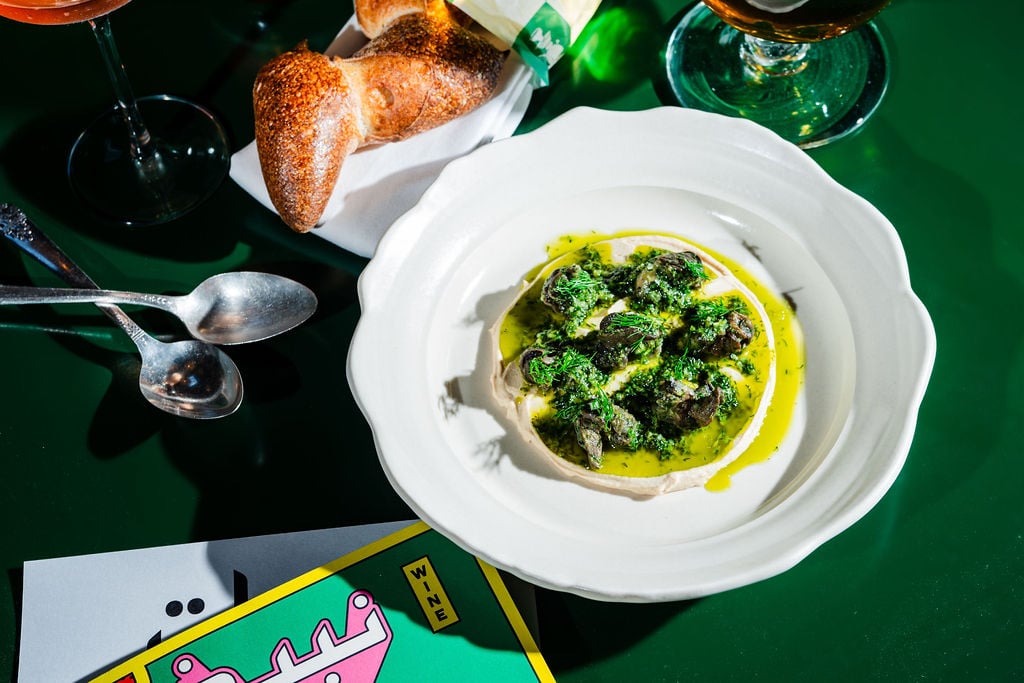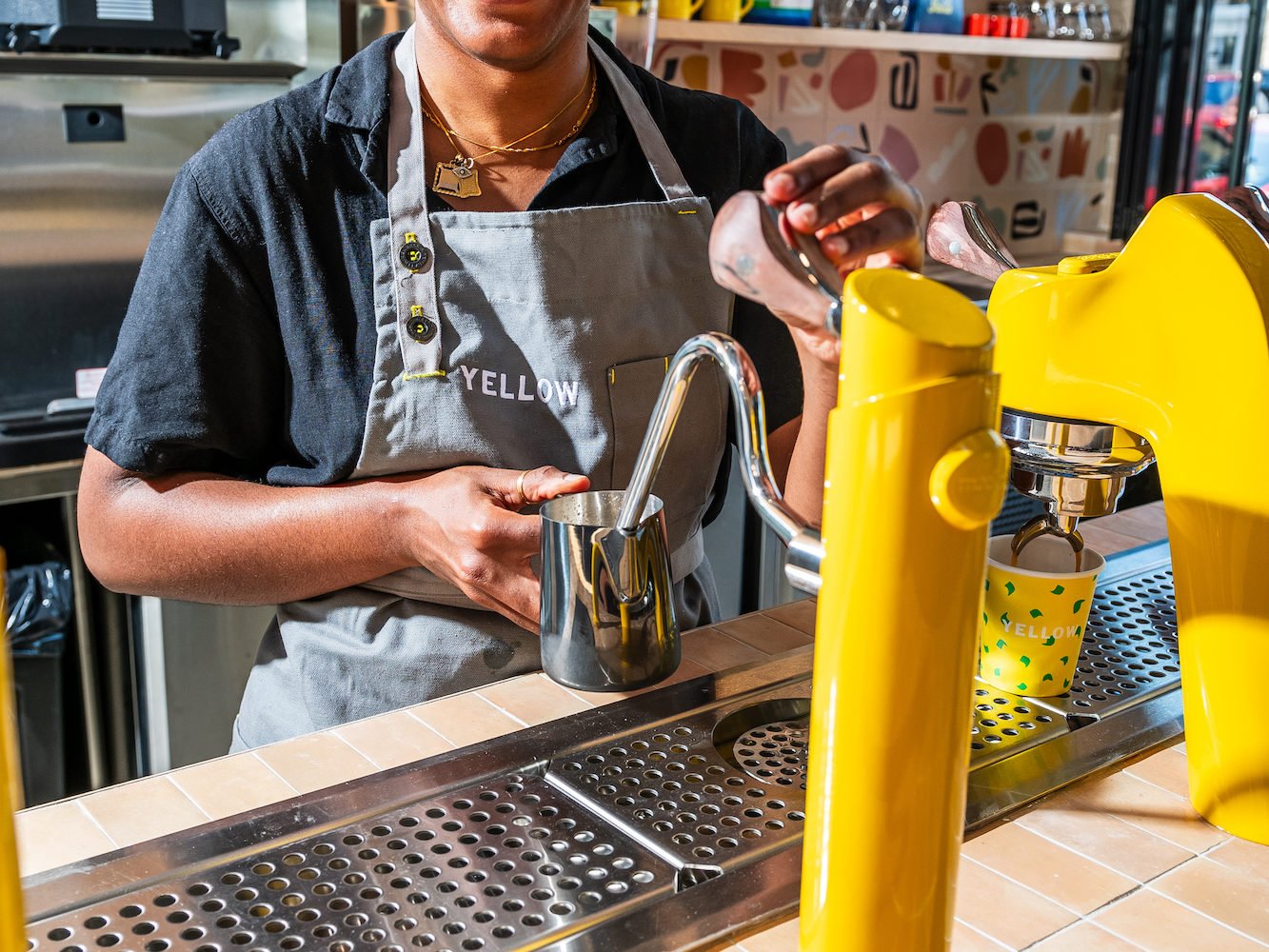On a recent delivery day, Maryland farmer Mike Mustard’s car darts among the loading docks of DC’s top restaurants. His dirt-flecked Fiat—bursting like a clown car with spring produce—is lilliputian com-pared with trucks from big-name suppliers like Baldor Specialty Foods. Open a door and a bounty of green garlic, onions, radishes, edible flowers, and salad greens floods out.
How did Mustard—whose rented four-acre farming plot is merely two seasons old—become a fixture on the delivery roster of restaurants such as Elle, Mirabelle, and Reverie? Simple: He’s also a chef. “He thinks like us” is a common refrain when cooks are asked why they like his vegetables so much. Mustard delivers goods that have been picked only a few hours before, then cleaned and even trimmed. Weekly order sheets are filled with unusual foraged finds along with tasting notes (“Wild Wood Sorrel: Plushes of clover-shaped leaves, lemony zing, sexy”).
A culinary-school grad, Mustard has been bouncing from kitchen to field all over the country for years. He came to this area after meeting chef Michael Rafidi when they were both cooking for Michael Mina in San Francisco. When Rafidi made plans to open his own DC restaurant—the forthcoming Albi, in Navy Yard—Mustard followed him. The duo are already planting produce and herbs, including fresh za’atar. During the fallow winter season, Mustard takes on line-cook stints at places such as Fancy Radish.
Currently a one-man operation, Mustard often works 95 hours a week. He sleeps in spurts—say, 30 minutes in a CVS parking lot on delivery days—and constantly snacks on apples and peanut butter to stay awake. His biggest enemies are groundhogs, which threaten to consume Mirabelle’s custom lettuce blend in a day. (It sells for $16 a plate.)
“The guess part is scary,” he says. “Maybe a deer eats a bunch of [a crop] before you get to it the next morning. But I want the freshest stuff, and chefs deserve the best product. It’s hard enough to be a chef without having to pick through old produce.”
A mind for business helps, too. When Mustard delivers to restaurants, he always makes time to chat chef-to-chef, dropping off samples such as wild black locust flowers. He also scans the fridge, making a mental checklist of what the restaurant is using and whom it’s buying from, then returning later with ingredients he thinks are better. Like any good millennial, he’s Instagram-savvy, posting photos and videos from the field: “With Instagram, the consumers can actually see that they’re buying local.” His farm uniform of choice is a dress shirt from T.J. Maxx so he can always have his phone in his chest pocket. (Every four hours, he uses its selfie camera to check for ticks.)
Now Mustard is aiming for a bigger audience. In June, he teamed up with one of his best clients, Blue Duck Tavern chef Adam Howard, to run a CSA out of the fine-dining restaurant. As at a farmers market, customers can mix and match their own seven-to-ten-pound produce bags, which come with recipes, for $20 a week.
Mustard dreams of owning a small farm one day. In the meantime, he has embraced his Fiat 500, “the worst farm vehicle in the world.” He eyes his competitors in massive trucks, but it’s not a look of envy.
“You see these guys, they probably started with pickups making deliveries themselves, in the grind. That’s the stage I’m in: the exciting part.”
This article appears in the July 2019 issue of Washingtonian.

